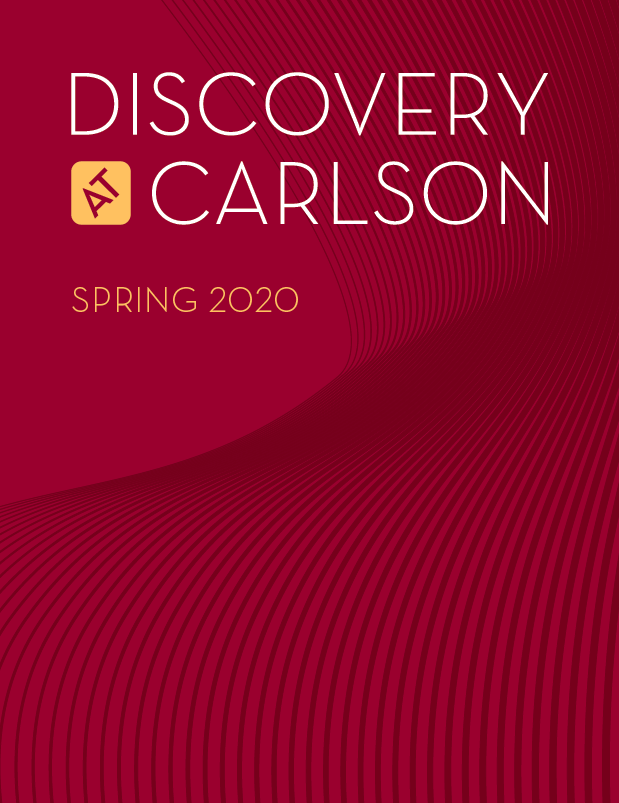
Tracy Yue Wang: The impact of a CEO’s cultural heritage
Tuesday, May 19, 2020
Imagine this scenario: Two people are equally qualified candidates to be the next CEO of your large, U.S.-based company. One person is of British heritage, the other German. Your top priority for the new CEO is growing the company via mergers and acquisitions (M&A). Based on that information, who do you choose?
Tracy Yue Wang, a Carlson School Finance Professor, would pick the Brit every time. And her research strongly backs that up.
Why?
“The British, culturally speaking, are more comfortable with uncertainty relative to the Germans,” says Wang. “M&A activities are often company-altering decisions and inherently come with many unknowns. Having a CEO who isn’t afraid of those, which we can tell from their cultural heritage, signals they’re more likely to engage in those activities. In contrast, Germans prefer certainty, meaning M&A is much less likely to occur.”
In fact, Wang finds that a CEO’s cultural heritage plays a deeper role in their decision making than we may assume. Wang and her colleagues reviewed more than 13,000 CEOs of nearly 9,000 U.S. publicly-traded companies between 1982- 2012, using immigration records and last names to determine cultural origin. They found 8,250 unique last names, most commonly of British, German, Irish, and Italian heritage.
Avoiding uncertainty
Wang and her team then used an uncertainty avoidance index (UAI) to capture cultural attitudes toward unfamiliar and unstructured situations. Dutch social psychologist Geert Hofstede developed UAI after reviewing several social characteristics and measuring their prevalence in each nation’s population.
Looking at M&A activity—which comes with uncertainties— proved useful for Wang and her team in confirming that cultural attitudes can affect CEO decision making.
“We found that CEOs with a more uncertainty-adverse cultural heritage are significantly less likely to engage in corporate acquisitions,” she says. “Also, those CEOs from more uncertainty-avoiding cultural backgrounds are more likely to choose targets in industries in which they have prior work experiences, lowering that uncertainty.”
Corporate leaders’ cultural heritage can help us understand corporate decision making.
The role of a CEO’s parents
On top of that, Wang’s research also looked at the influence of CEOs parents. Since most of the CEOs in U.S. publicly-traded companies were born in the U.S., parenting likely plays a crucial role in the transmission of cultural values and preferences. This is indeed what Wang’s research found. A CEO’s cultural heritage is a better predictor of his or her corporate decisions if the CEO’s parents emphasize cultural heritage more. They also found some interesting differences between sons and daughters. Male CEOs’ attitudes towards uncertainty were mainly influenced by their father’s cultural heritage while female CEOs’ attitudes towards uncertainty were shaped by both parents’ heritage.
These links between cultural heritage and decision making are quite persistent, lasting up to 100 years after the family immigrated to the U.S., according to their estimates. But there is gradual assimilation over time.
Long-lasting impact
“Corporate leaders’ cultural heritage can help us understand corporate decision making,” Wang says. "CEOs have the biggest impact on their company out of anybody. If we are able to figure out their preferences and look at the factors that affect their decision making such as their cultural heritage, we can better assess their appetite for uncertainty and understand why a CEO may be making certain decisions.”
